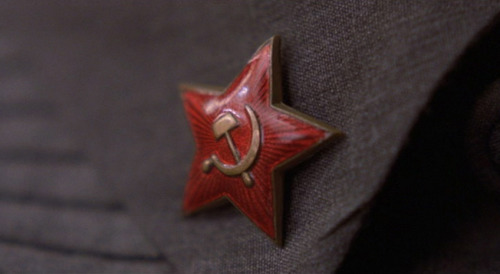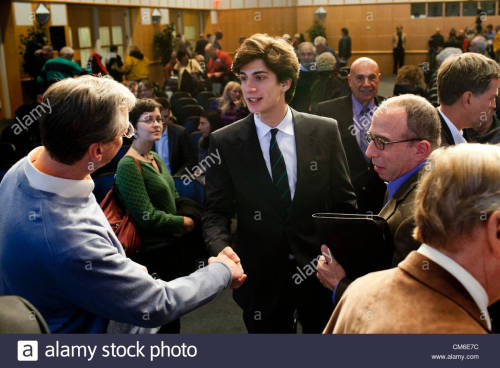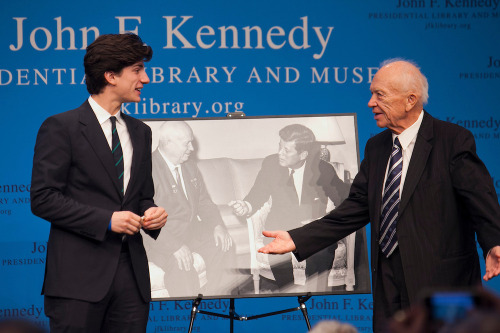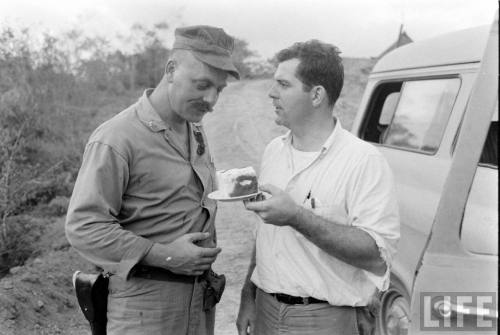#cuban missile crisis

On October 28, 1962, the thirteen days of the Cuban Missile Crisis came to an end. In the late hours of October 27, Robert Kennedy secretly met with Soviet Ambassador Anatoly Dobrynin, and the two reached a basic understanding:
The Soviet Union would withdraw the missiles from Cuba under United Nations supervision in exchange for an American pledge not to invade Cuba. In an additional secret understanding, the United States agreed to eventually remove the Jupiter missiles from Turkey.
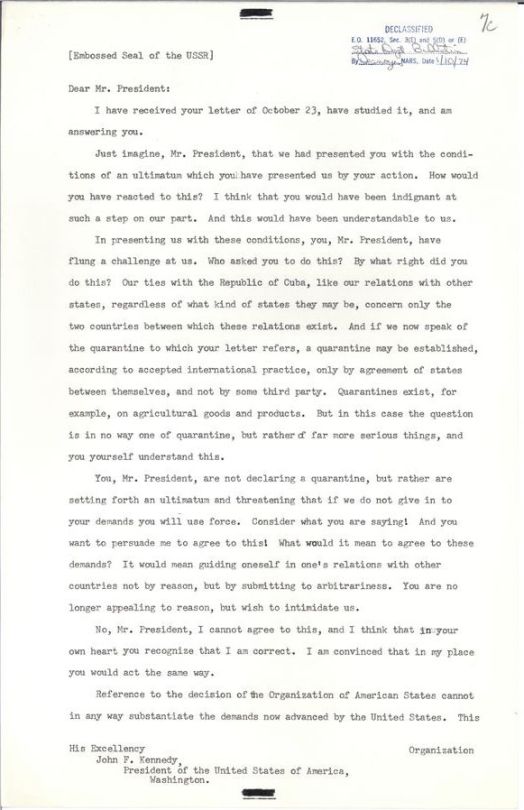
October 24, 1962 – Day 9 of the Cuban Missile Crisis
Nikita Khrushchev writes an incensed response to President Kennedy’s October 23rd letter announcing the naval quarantine of Cuba.
Dear Mr. President:
I have received your letter of October 23, have studied it, and am answering you.
Just imagine, Mr. President, that we had presented you with the conditions of an ultimatum which you have presented us by your action. How would you have reacted to this? I think that you would have been indignant at such a step on our part. And this would have been understandable to us.
In presenting us with these conditions, you, Mr. President, have flung a challenge at us. Who asked you to do this?

October 23, 1962 – Day 8 of the Cuban Missile Crisis
President Kennedy signs Proclamation 3504, authorizing the naval quarantine of Cuba. The four-page proclamation included this statement in the second paragraph:
“The United States is determined to prevent by whatever means may be necessary, including the use of arms, the Marxist-Leninist regime in Cuba from extending, by force or the threat of force, its aggressive or subversive activities to any part of this hemisphere, and to prevent in Cuba the creation or use of an externally supported military capability endangering the security of the United States.”

October 22, 1962 – Day 7 of the Cuban Missile Crisis
At 7:00 p.m. President Kennedy makes a televised address, revealing the evidence of Soviet missiles in Cuba and calling for their removal. He also announces the establishment of a naval quarantine around the island until the Soviet Union agrees to dismantle the missile sites and to make certain that no additional missiles are shipped to Cuba. Near the conclusion of his speech, JFK says this:
“My fellow citizens: let no one doubt that this is a difficult and dangerous effort on which we have set out. No one can see precisely what course it will take or what costs or casualties will be incurred. Many months of sacrifice and self-discipline lie ahead–months in which our patience and our will will be tested–months in which many threats and denunciations will keep us aware of our dangers. But the greatest danger of all would be to do nothing.”
Listen to JFK’s address and read the full transcript, or view the press release and his reading copy.
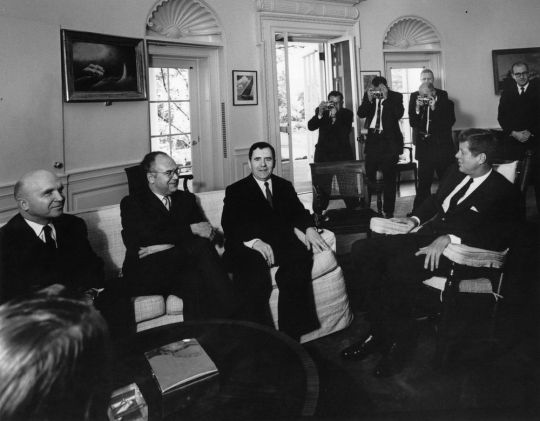
AR7552-B. President John F. Kennedy Meets with Soviet Foreign Minister Andrei Gromyko, October 18, 1962
President Kennedy meets with Soviet Ambassador Andrei Gromyko in the Oval Office. The memorandum of the meeting notes the Ambassador’s desire to be open with the United States:
“Mr. Gromyko said he knew that the President appreciated frankness. Mr. Khrushchev’s conversation with the President at Vienna had been frank and therefore, with the President’s permission, he himself wished to be frank, too.”
Despite this promise of openness, Gromyko did not speak about the Soviet missiles in Cuba, unaware that President Kennedy already knew of their existence, but had also chosen not to discuss them.
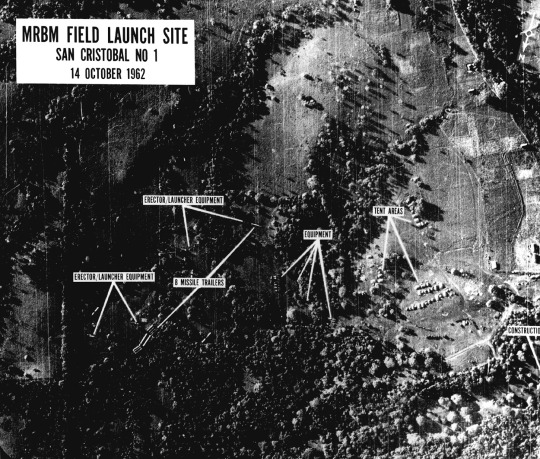
At 8:45 AM on October 16, 1962, National Security Advisor McGeorge Bundy alerted President Kennedy that a major international crisis was at hand. Two days earlier, a United States military surveillance aircraft had taken hundreds of aerial photographs of Cuba, which showed conclusive evidence that a Soviet missile base was under construction near San Cristobal, Cuba.
Discussions began on how to respond to the challenge. Two principal courses were offered: an air strike and invasion, or a naval quarantine with the threat of further military action. To avoid arousing public concern, President Kennedy maintained his official schedule, meeting periodically with advisors to discuss the status of events in Cuba and possible strategies.
Russia’s Weak Response To Finland’s Joining NATO
Russia’s Weak Response To Finland’s Joining NATO
On May 12th, Russia’s RT bannered “Finland’s NATO membership will trigger response – Moscow”, and reported that
Moscow has warned that Finland joining NATO would pose a direct threat to Russia’s security and its acceptance to the military alliance would prompt Russia to develop measures to ensure its safety. That’s after Finnish officials confirmed on Thursday their commitment to join the US-led…

Jack at a ceremony at the JKF library to honour the 50th anniversary of the Cuban Missile crisis
Post link

